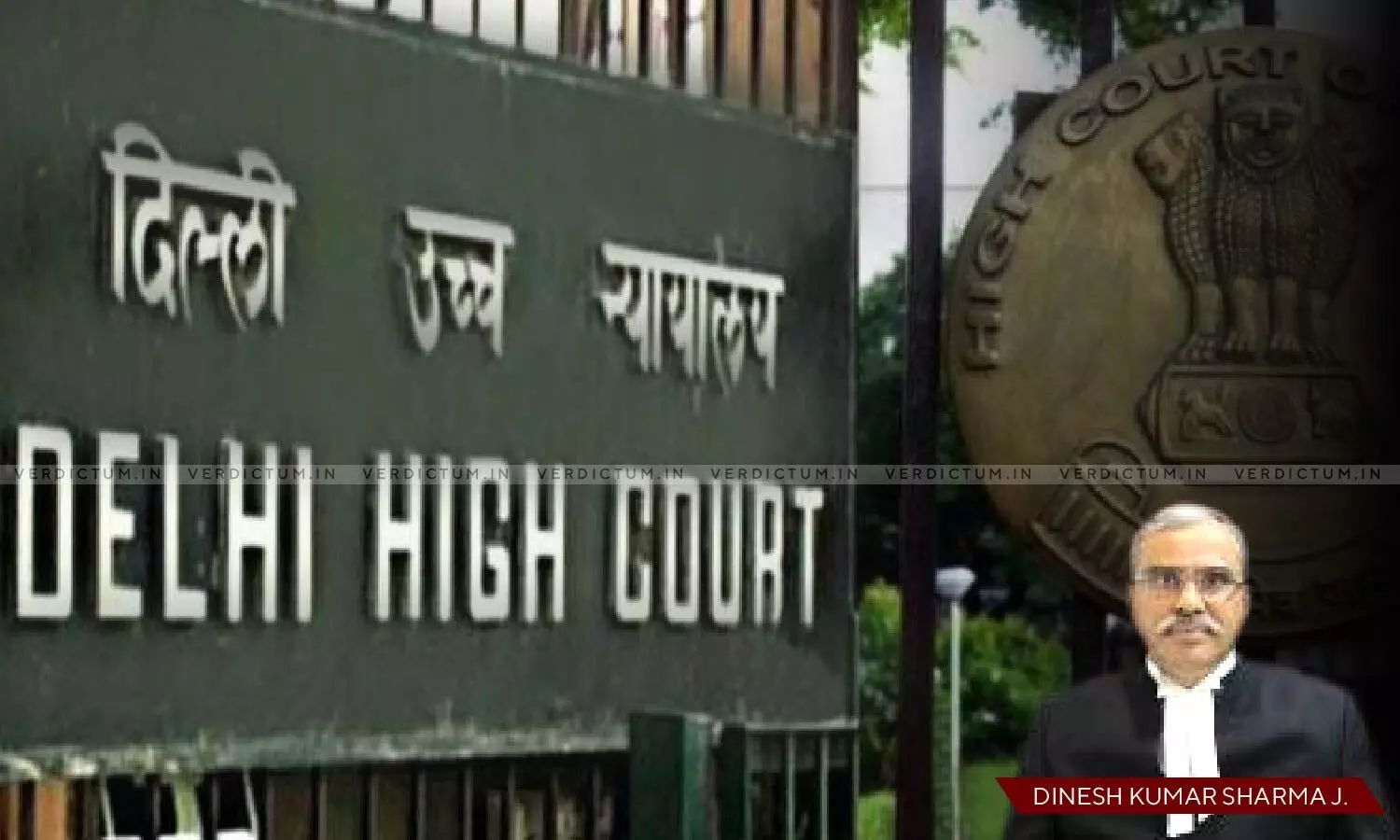
Bail Application Already Rejected By Special Judge: Delhi HC While Dismissing Petition Of Supertech Owner Challenging ED's Arrest
 |
|The Delhi High Court has rejected the petition of Chairman and Owner of Supertech Limited, R.K. Arora who had challenged his arrest by Enforcement Directorate (ED) saying that the bail application has been already rejected by the Special Judge.
The Court was dealing with a writ petition filed under Article 226/227 of the Constitution read with Section 482 CrPC for an appropriate writ, order or direction declaring the arrest of the petitioner as illegal and violative of his fundamental rights guaranteed to him under Articles 14, 20, and 21 and directing his release.
A Single Bench of Justice Dinesh Kumar Sharma held, “As far as the contention of the learned senior counsel for the petitioner to release the petitioner on interim bail or to release him or to pass an order enabling him to attend the meetings in custody, I consider that such order cannot be passed in the present proceedings, particularly, in view of the fact that the bail application has already been rejected by the learned Special Judge vide a detailed order.”
The Bench said that the Special Judge found sufficient material on the record and recorded a finding that the investigating agency has complied with the provisions of law while arresting the accused and that such judgment rather favours the ED.
Senior Advocate Abhishek Manu Singhvi with Advocate R.K. Handoo represented the petitioner while Special Counsel Zoheb Hossain represented the ED.
Facts of the Case -
It was submitted that the petitioner was arbitrarily and illegally arrested by the respondent and was not informed/served the grounds of his arrest. When the petitioner was produced before the Special Judge, an application was moved seeking copy of ground of arrest which was opposed by the ED and the Special Judge directed the ED to file the reply in that regard that the ground of arrest was not supplied/served upon the petitioner. A reply to the application seeking grounds of arrest was filed by ED wherein it was claimed that the grounds of arrest were informed to the petitioner and he was made to read and sign the same.
However, the ED refused to supply/serve copy of the aforesaid to the petitioner. The petitioner stated that a bail application was moved which was rejected by the Special Judge and the petitioner was remanded to judicial custody thereafter. The money-laundering case against the Supertech group, its directors and promoters resulted from the FIRs which were registered by the Delhi, Haryana, and Uttar Pradesh police.
The High Court in the above regard noted, “It is pertinent to mention here that the petitioner is required to visit Bombay to attend the meetings. I consider that it would be impractical to send the petitioner to Bombay in custody for attending the meetings with the financial creditors. It is pertinent to mention here that even for releasing the petitioner on interim bail the rigours of Section 45 have to be satisfied.”
The Court, therefore, allowed the petitioner to attend the meeting through VC (Video Conferencing) from the jail itself in accordance with the law and directed the Superintendent of Jail to do arrangements for the same.
“In the present case the grounds of arrest were duly given and notified to the petitioner and he endorsed the same in writing under his signature. The core issue is of being “informed” and “as soon as”. It if has been duly notified and brought to the notice at the time of arrest and further disclosed in detail in the remand application, it amounts be be duly informed and served”, said the Court.
The Court further observed that there is no violation of Fundamental Rights of the petitioner and that there is nothing on the record to suggest that the petitioner has been denied right to consult and defended by legal practitioner.
“… there is nothing on record to suggest that reason to believe “as required under Section 19(1) of the PMLA was not recorded in writing and, therefore, it cannot be held that petitioner was arrested illegally. … The petitioner here failed to show that the arrest of the petitioner is in violation of Section 19 of the PMLA”, also said the Court.
Accordingly, the High Court dismissed the petition.
Cause Title- Ram Kishor Arora v. Director, Directorate of Enforcement & Anr. (Neutral Citation: 2023:DHC:6909)